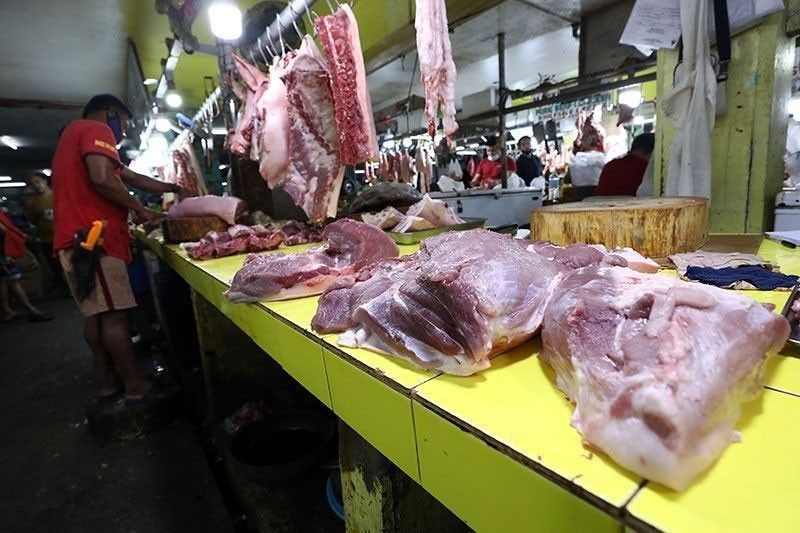Pork imports will not kill local hog industry – NEDA

MANILA, Philippines — Importing more pork at lower tariffs will not cause the demise of the local hog industry amid calls to revoke an executive order that allows bringing in more supply to stabilize prices, the country’s lead economic planner said.
During a Senate hearing yesterday, Acting Socioeconomic Planning Secretary Karl Chua said increasing the minimum access volume (MAV) for pork imports and slashing tariff rates are crucial in ensuring that supply is adequate and affordable.
Some lawmakers earlier moved to revoke Executive Order 128 but Malacanang already said the President may veto any particular item or items in such appropriation, revenue or tariff bill.
“Temporary increase in pork imports will not kill the local hog industry as imports will only account for 22.8 percent of total consumption,” Chua said.
“Imports will not flood our market as African swine fever (ASF) has also affected production of many countries,” he said.
This year, the deficit in pork meat is estimated at 476,540 metric tons (MT) as the country’s swine inventory went down 24 percent due to ASF.
Chua maintained that the increase in MAV from 54,000 MT to 404,000 MT is consistent with the supply deficit.
“The data clearly shows that we cannot meet the total demand for pork only through domestic support, this strategy is not enough and has only led to a spike in prices,” Chua said.
Prices of pork increased by about 36 percent. In Metro Manila alone, it surged by almost 60 percent. Chua said the tariff for pork needs to be low enough to reduce and stabilize retail prices.
At 30 to 40 percent tariff, landed cost of imported pork is P252 to P267 per kilogram, way above the normal price of P224 per kilo.
“Importing at this cost would not lead to a lower retail price which the people badly need now,” Chua said.
Temporarily lowering the tariff rate from between five and 10 percent will make landed cost at P215 to P222 which could lead to a reduction in retail price by as much as P135 a kilo.
“We need to help domestic producers recover from ASF. We also need to help 95 million consumers by reducing tariffs and increasing the MAV temporarily to help fill the deficit,” he said.
Consequently, the high prices of pork led to a spike in the country’s inflation. From a 0.2 percentage point contribution in March last year, it went to 1.4 percentage points last month.
Meat inflation surged to 20.9 percent in March, the top contributor to overall inflation for the month. It even exceeded rice inflation during the height of the price spike in 2018.
Chua said augmenting current supply with imports would lead to a decline in full year inflation by around 0.4 percentage point.
He said inflation for 2021 would settle at 4.2 percent if no reform is done but is expected to be at 3.8 percent if additional importation would be pursued.
This means that inflation will fall within the central bank’s target of two to four percent.
Chua emphasized that the limited cold chain capacity in the country serves as a physical barrier to huge importation as capacity is estimated only at 268,000 MT for pork given the requirement of other commodities.
- Latest
- Trending





























